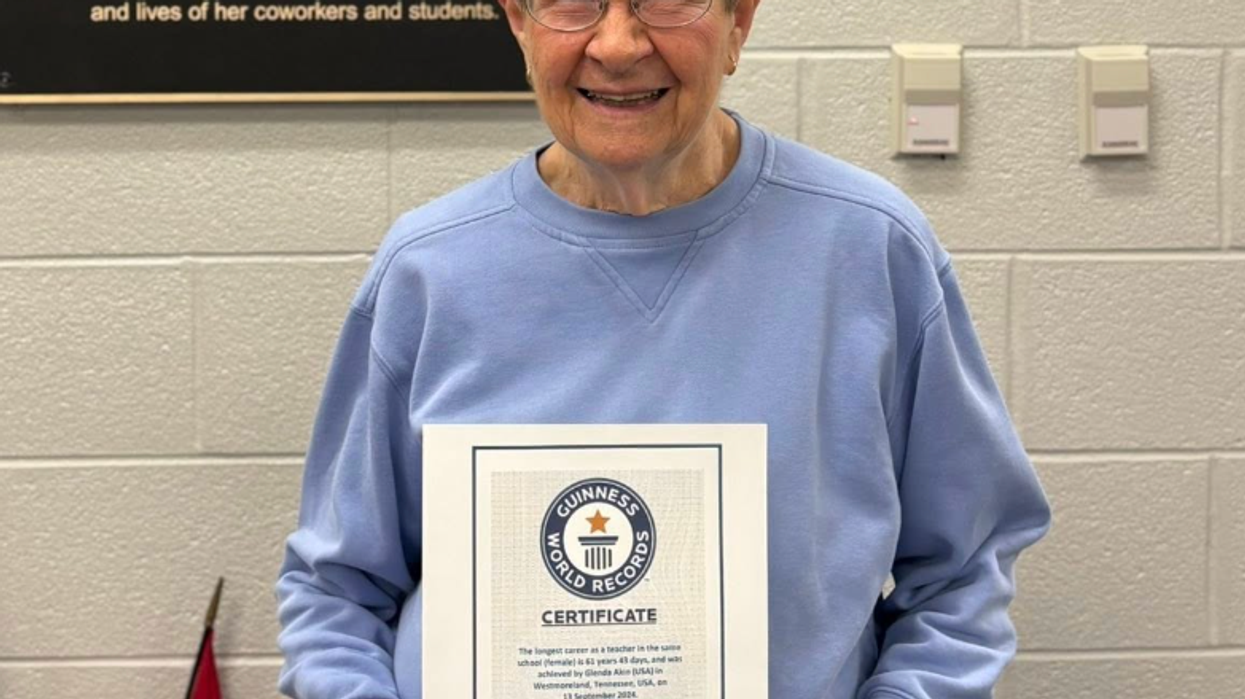Midterm elections are so uninteresting that political scientists have been able to write an equation for them:
Edward Tufte's 1975 Economic Theory of Midterm Elections states that people vote for or against the president's party based solely on his approval ratings and their disposable income. Those lawn signs, local ads, and even the candidates themselves are irrelevant. The equation is more accurate than pre-election Gallup polls. And an easy way to outwonk your dorkiest friends. You want to end an argument with a poli-sci major, just start doing math.
The reason midterms are the only time political scientists get to act like real scientists is simple: Even the few people who care enough to vote don't care enough to research the candidates. Assuming you don't have a vested interest in sugar subsidies, you don't really care who your congressperson is. No less your local judges. (Whoever invented voting for judges was obviously an incredibly smart criminal.)
I know, you truly believe Tufte's equation doesn't apply to you. You're different. You care deeply about politics.
You do not. What you care deeply about is getting in red-faced screaming fights about why the president is pure good or pure evil. This has nothing to do with politics. This has to do with the fact that you're an angry person. Politics just happens to be the socially acceptable way for you to vent that anger. If you were one socio-economic notch less intellectually aspirational, you'd be screaming at sports radio shows instead of "Meet The Press."
Compared to arguing over George W. Bush, fighting about your congressperson is, adrenaline-wise, a major letdown. First of all, you have to find out stuff about your congressperson. Even more challenging, you have to seek out an opponent who also knows something about your congressperson. Having done that kind of research, you might as well just run for Congress yourself.
Only about half of Americans vote in presidential elections and that comes with prime-time debates and, thanks to campaign finance laws, tons of slick mud-slinging television ads financed by vicious interest groups. So it makes sense that midterm elections always lose almost exactly 15 points from the previous presidential election. That means about a third fewer voters. And they largely vote for incumbents. Because, while you hate politicians, it just so happens that your representative happens to be a good guy. Particularly since he's running against someone you've never heard of who belongs to the party you don't like. You're starting to see how this works.
So if the incumbents have such an advantage, and any deviation in your vote depends-mathematically-on the president's approval ratings and your bank account, why are these people spending so much time and integrity fund-raising to finance their campaigns? Is all this corruption and time and money completely wasted? Is the best political textbook ever written actually No Exit?
Yes, in the macro-sense. But your guy, he doesn't really want to be in the House of Representatives, because being in the House sucks. If D.C. is like high school, Congress is the prom committee, only there's no prom. This is a place so boring that Dennis Hastert was charismatic enough to be elected leader. Not only do you have no power, but every two years you have to beg the public for a job where you eat lunch in a cafeteria.
So your representative is not playing to win so much as to beat the spread. If he can capture the outliers, if he can beat Tufte's equation by a percentage or two, if he can exceed expectations, then he can run again if he loses, or run for a bigger office if he wins.
This year voting will seem exciting because of a giant shift against the President, which, according to Tufte's equation, means that incumbents will fall. It will make everyone feel hopeful, like the system is working. And it is, in that when change is desired, the House changes violently.
Really, your research into the candidates won't matter. But that doesn't mean it isn't important. No, you won't affect who wins. But, with just a little bit of investigation, you can break free of Tufte's equation. You can impact whether someone exceeds his polling numbers-thereby controlling the future of his career. Democracy may be an unfortunately blunt instrument for policy, but it's a sharp one for destroying politician's lives. Our founding fathers fought a war for that. Enjoy it.
Voting primer:
Three steps toward being a good citizen on election day
1. Make sure you are registered.
Go to declareyourself.com to register. Sure the site may look a bit like a tacky MTV commercial, but it actually has some good content and provides some easily navigated avenues for all things electoral. Remember that you must register to vote 30 days prior to an election.
2. Know your polling place.
Go to mypollingplace.com to find your polling place. Then work through a series of increasingly specific maps.
3. Know what you are voting for.
This is probably the most important step of the three (even if it's useless without completing the previous two). On vote-smart.org, you can find extensive non-partisan information on the voting records of elected officials, candidate positions on issues, and descriptions of legislation.















 Otis knew before they did.
Otis knew before they did.